- Issues
« Taming the National Debt
Taming the National Debt
Faced
with federal spending at around 25 percent of GDP and national debt of
close to $14.3 trillion, the 112th Congress has been preoccupied with
making spending cuts and addressing the national debt. One
important contribution to this debate came in December 2010 when the
National Commission on Fiscal Responsibility
and Reform (Debt Commission) issued its final recommendations in a
report, "The Moment of Truth." However, in a December 3 vote the
Commission failed to endorse the report. Tea Party activists
and
many of the 87 Republican House members elected in Nov. 2010
have been at the forefront of efforts to cut government spending and
reduce the national debt. In March 2011, CBO Director Doug
Elmendorf observed that "there is more focus in Washington on federal
budget problems today
than there has been since the late 1990s, and that focus has led to a
range of proposals for tackling the problems."
A major dividing
line is whether debt reduction can be achieved solely by cutting
spending or whether it will be necessary to increase revenue, i.e.
raise taxes. (Elemendorf, for example, stated that "fiscal policy
cannot be put on a sustainable path just by
eliminating waste and inefficiency; the policy changes that are needed
will significantly affect popular programs or people’s tax payments or
both.") Both sides employ moral arguments. Conservatives
emphasize the immorality of leaving the next generation with a mountain
of debt, while progressives stress the need to help the poor and
underprivileged in our society.
FY 2012 Budget | Finishing FY 2011 | The Debt Limit Debate | The Super Committee Fails
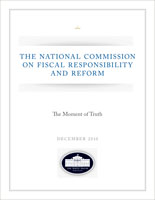 |
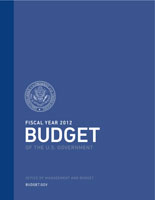 |
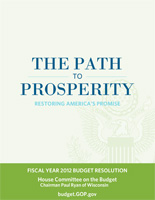 |
Gang of Six Sen. Mark Warner (D-VA) Sen. Saxby Chambliss (R-GA) Sen. Dick Durbin (D-IL) Sen. Kent Conrad (D-ND) Sen. Tom Coburn (R-OK) Sen. Mike Crapo (R-ID) |
| National
Commission
on
Fiscal Resonsibility and Reform (Dec. 1, 2010) |
 President Obama (released Feb. 14, 2011) |
House
Budget
Committee (released April 5, 2011) |
|
| "The problem is
real. The solution will be painful. There is no easy way out.
Everything must be on the table. And Washington must lead." |
"...a responsible approach that puts the nation on a path to live within our means so we can invest in our future." | "It cuts $6.2
trillion in spending from the president's budget over the
next 10 years, reduces the debt as a percentage of the economy, and
puts the nation on a path to actually pay off our national debt." |
|
| CBO |
CBO |
||
| April 13, 2011 speech on fiscal
responsibility. |
|||
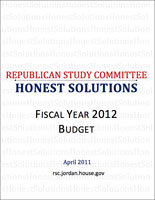 |
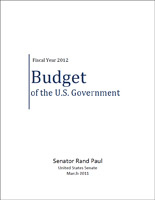 |
||
| Republican Study
Committee (released April 7, 2011) |
Sen. Rand Paul (released March 2011) |
||
| "...gets us from trillion-dollar deficits to balance in just nine years..." | "This budget emphasizes the need to return sovereignty back to the states, empowering individuals, promoting liberty, fixing a broken safety net, and finally, leaving the next generation with a better America." | |
|
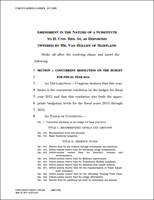 |
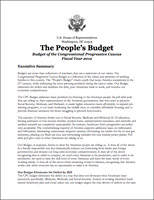 |
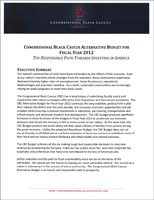 |
|
| House
Democratic
alternative (released April 13, 2011) |
Congressional
Progressive Caucus (released April 14, 2011) |
Congressional
Black Caucus (released April 14, 2011) |
|
| "...a path forward to address our deficit and also make strategic national investments necessary to ensure that our country out-educates, out-innovates, and out-builds the rest of the world.” | "...eliminates the deficit and stabilizes the debt, puts Americans back to work, and restores our economic competiveness." | "...reduces the
deficit over the next decade, and increases economic opportunities and
job creation while ensuring sustained investments in education, job
training, transportation and infrastructure, and advanced reseach and
development." |

